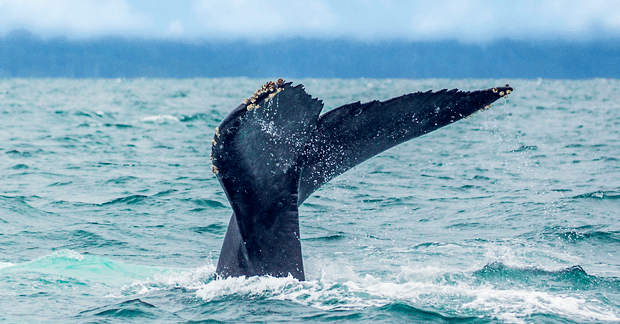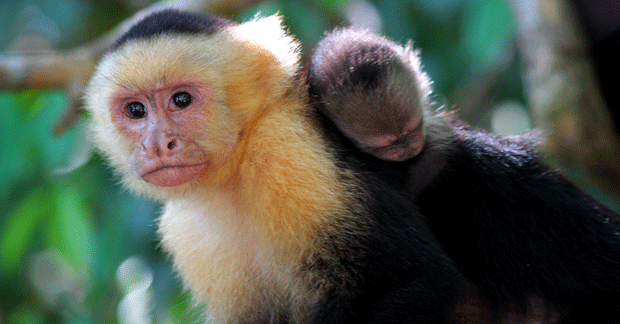In association with: Costa Rica Tourism Board
Clients will find all kinds of wildlife on a trip to Costa Rica, which prides itself on sustainable travel
Costa Rica has been at the forefront of sustainable travel for years through its mantra ‘Pura Vida’ – which means pure life, or simple life. Now agents can learn more, and have the chance to win a place on a fam trip by taking an online training course at the Pura Vida University.
It’s all part of the tourist board’s Pura Vida Pledge: a promise to educate the travel trade and visitors on the real meaning of responsible tourism and the actions they can take to make a true difference to local communities in a destination. Costa Rica is a land full of wonderful – and varied – experiences for travellers, with stunning beaches, towering volcanoes and lush rainforests.
When it comes to flora and fauna, there is more than enough to cater for the biggest wildlife enthusiasts, and visitors will come across all kinds of animals. The Pacific coast is great for whale watching: humpbacks can be seen almost all year round, while pilot whales, blue whales and pseudo-orca can be seen in Costa Rica’s waters. Ostional beach and Playa Grande are well-known sites for spotting sea turtles, as is Tortuguero National Park on the Caribbean side, a popular nesting ground for the endangered green turtles.

The country’s rainforests are home to hundreds of mammal species. In Corcovado National Park, visitors can spot sloths, howler monkeys, porcupines, deer, jaguars and more. When it comes to tropical birds, Costa Rica is the place to be. It has six species of the distinctive toucan, while vibrant scarlet macaws can be seen (and heard) in many national parks. Plus, watching tiny hummingbirds buzz about is a regular highlight of any trip to Monteverde Cloud Forest.
Butterflies can be seen throughout and visitors may even catch a glimpse of the gigantic blue morpho. And look out for the country’s many reptiles and amphibians, including the red‑eyed tree frog with its coloured eyes and feet. Given the high levels of biodiversity in Costa Rica – this relatively tiny land contains 6.5% of the world’s total – it remains vital that visitors to the country travel responsibly.
It’s time to learn about ‘Pura Vida’, so clients can be confident that they’ll enjoy Costa Rica’s volcanoes, beaches and wild landscapes in a sustainable way.
Pura Vida principles
- Companies in Costa Rica can be awarded the Certification for Sustainable Tourism (CST) based on their efforts to support the environment. UK operators are encouraged to work with those who have received this.
- The tourist board has partnered with the National Forestry Financing Fund (Fonafifo) to tackle carbon emissions. Travellers can use the online calculator to track the amount produced by their flight and choose whether to offset this with a donation. The tool is available on Pura Vida University.
- There are volunteering opportunities for visitors to Costa Rica. From working in animal conservation to teaching English, these projects can have a far-reaching impact on local communities.
- Respect for the environment is at the heart of the pledge – by visiting a country committed to sustainable travel, other places and businesses will be inspired to follow suit. It’s important to act now before it is too late.

Experience the Pura Vida and win a place on a 2022 fam trip to Costa Rica
Costa Rica’s tourism board is giving four lucky winners a place on the 2022 mega-fam. For your chance to win, pass the online training course on puravidauniversity.co.uk by October 31 to be part of the prize draw. Agents who have already passed the course will be automatically entered. T&Cs apply.
PICTURES: Manuel Antonio

